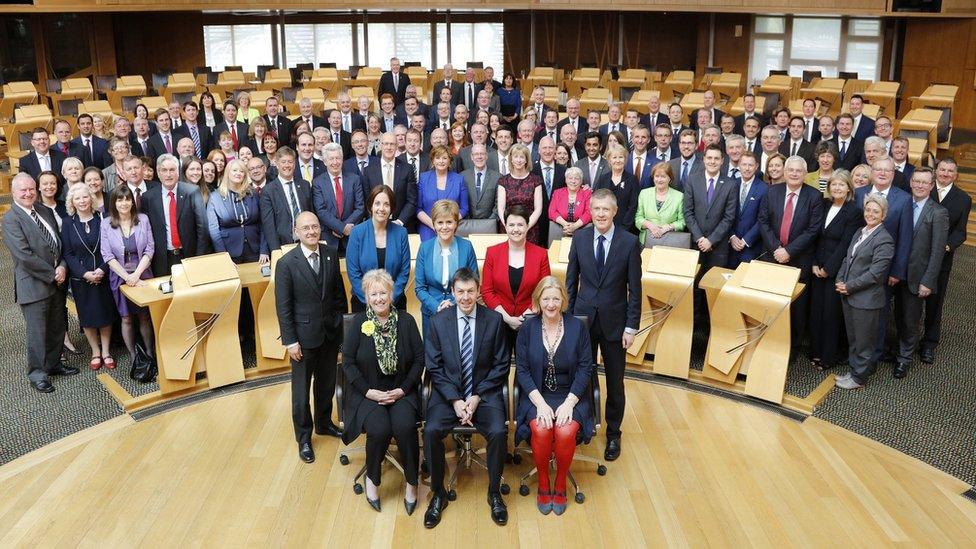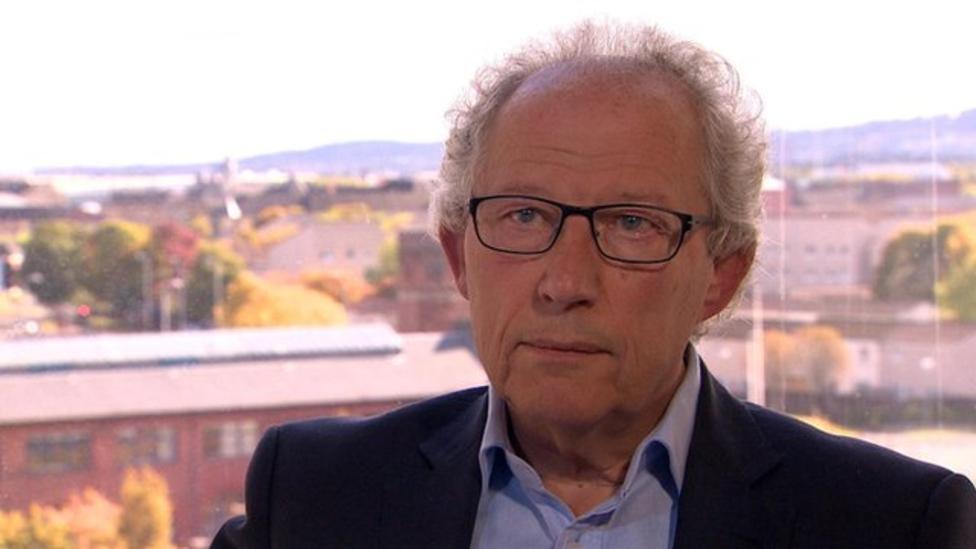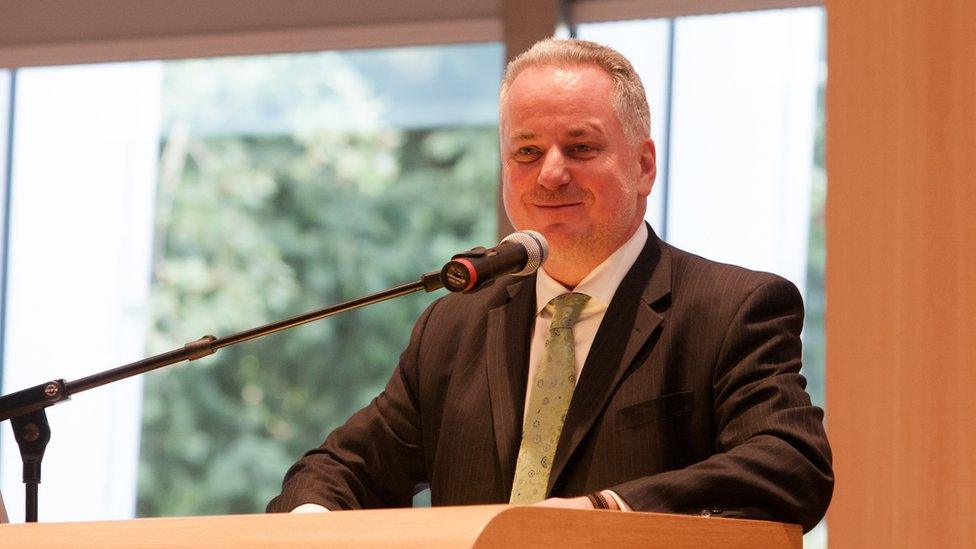Former FM Henry McLeish calls for more MSPs at Holyrood
- Published

Holyrood currently has 129 MSPs
Two former first ministers have suggested major changes to the Scottish Parliament, including an increase in the number of MSPs.
Henry McLeish and Jack McConnell are to give evidence to the Commission on Parliamentary Reform on Monday.
In written evidence, external, Mr McLeish said the current total of 129 of MSPs was "incredibly limiting".
And both men suggested the electoral list system currently used in Holyrood elections should be re-evaluated.
Mr McLeish called for a "serious look" at the electoral system, while Mr McConnell said the list system was partially to blame for MSPs having stronger links to their parties than their constituents.
Presiding Officer Ken Macintosh set up the independent Commission on Parliamentary Reform.
It is reviewing;
the role of Holyrood in scrutinising legislation
the committee system
and parliament's independence from the Scottish government.
The reform body is being chaired by former Electoral Commissioner John McCormick, and has a "wide and substantial remit" to give Holyrood "an MOT".
On Monday, it will take evidence from former Labour first ministers Mr McConnell and Mr McLeish.

Henry McLeish said Holyrood could ultimately be "unrecognisable" compared to how it was envisaged in 1998
Mr McLeish said among talk of home rule, federalism and independence, the parliament could "become unrecognisable in relation to the Scotland Bill of 1998", with "a much more onerous legislative programme".
He said there should be more elected representatives at Holyrood, and more time for them to work.
Mr McLeish explained: "The number of MSPs is incredibly limiting in the amount of work that can be processed in the current working week.
"This is clearly an issue at the present time but in this turbulent political world thing could get a whole lot worse as Holyrood assumes more importance in the continuing redistribution of powers and responsibilities within the United Kingdom.
"This is not a partisan or political issue, it is of vital practical importance and significance if Holyrood is to be fit for purpose in this rapidly changing political landscape."
Written constitution
Mr McLeish said there were "compelling reasons for Scotland to have a codified written and accessible constitution".
He said: "Regardless of our future constitutional status a constitution would serve to define and protect the relationships between institutions in Scotland; between the Scottish government and the Parliament; between the Scottish government and other public institutions, such as local government which has no real official status; and the rights, freedoms and responsibilities of the individual and their relationships with all of the above."
The former politician also said it might be time to "have a serious look at our electoral system", describing the Holyrood system as "certainly better and more democratic than the 'first past the post' system still used by Westminster".
He questioned whether a case could be made for "some form of proportionality or alternative voting", asking if Scotland could "create a fairer system based on multi-member constituencies while abandoning the list system".
Mr McLeish concluded that there was "no reason why the parliament and presiding officer should not consider setting up a Standing Commission on the Parliament" to examine further options.

Jack McConnell said there was "room for improvement" at Holyrood
Mr McConnell, who was an MSP between 1999 and 2011 and Scotland's first minister from 2001 to 2007, is currently a member of the House of Lords.
He said "there has always been room for improvement" in Holyrood's systems, saying "some of the systems adopted in the early days have made the parliament less effective rather than more".
The peer said the balance between MSPs representing their constituents and being part of a party "has shifted too far in the direction of the party, and is not strong enough in the connection with the constituents".
He added that this was "partly an outcome of the mixed-member electoral system", but also partly "an outcome of the way in which parties have operated internally, and how the committees function".
Both men agreed committees should be less partisan, with Mr McConnell saying that "with a few notable exceptions, they have neither significantly influenced legislation nor the direction of national policy".
In his written submission, he said: "Committees are more partisan and reactive than was expected. There seems to be a need to change the system of appointments and to revisit the combination of roles between legislative scrutiny and longer term inquiries and reports."
Lord McConnell also said the hours of parliament should be more flexible, and that ministerial question times "need to change".
- Published26 October 2016
